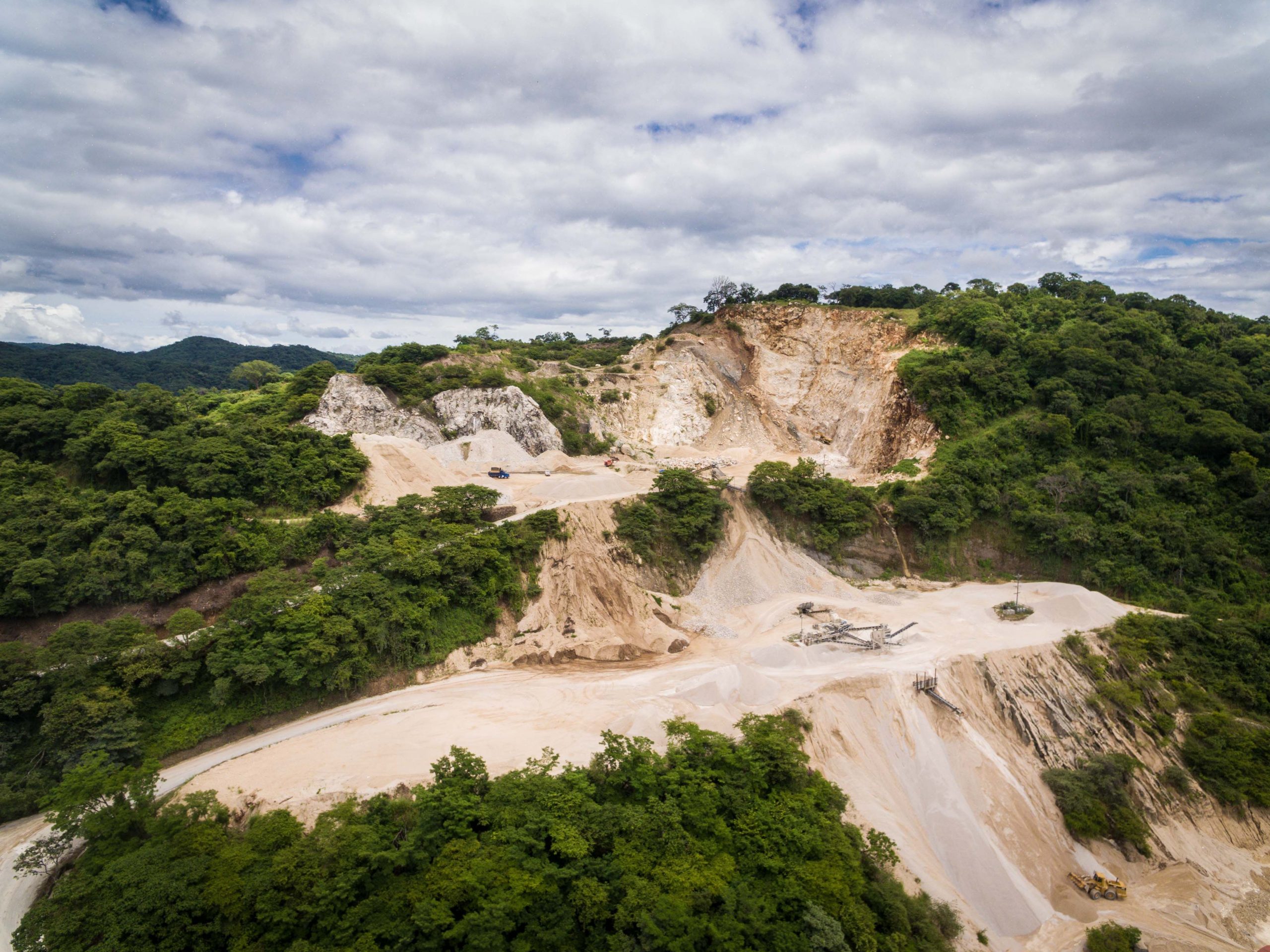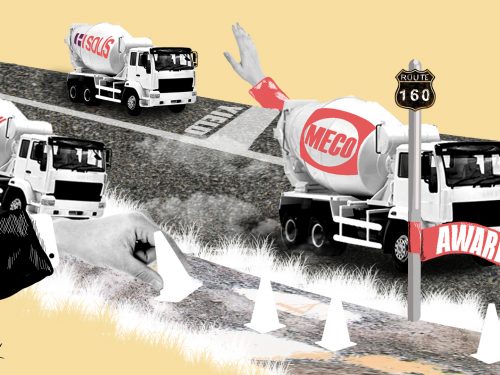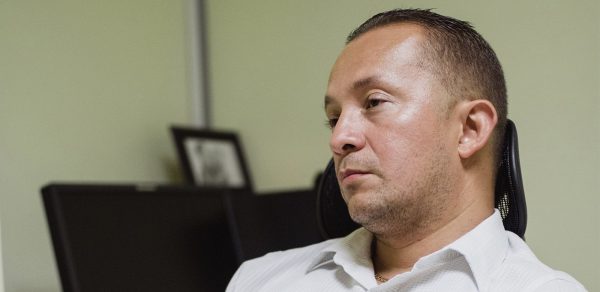
In December of 2019, the National Highway Council (CONAVI- Consejo Nacional de Vialidad) opened the bidding process for transporting and laying asphalt on the first 10 kilometers (6 miles) of Route 160, between Garza and Nosara, in the canton of Nicoya. After months of analysis, the institution declared MECO S.A. as the winner and in September of 2020, work on the road began.
The roadwork ended in January of 2021, a historic date for the Nosara community, which had waited almost two decades to see pavement on the road. But half a year later, what was just an achievement for the community is now involved in the Cochinilla case, one of the largest corruption investigations in Costa Rica, whose list of defendants is headed by officials from CONAVI and private construction companies, including MECO.
According to the investigation’s judicial file, between March and April of 2020, MECO allegedly bribed at least two of CONAVI’s senior officials to disqualify Quebradores Pedregal S.A., who also participated in the bidding process and, in addition, offered the cheapest option for the State. The Judicial Investigation Agency (OIJ- Organismo de Investigación Judicial) also suspects that public officials leaked sensitive information about the project to MECO.
In April of the same year, CONAVI disqualified Pedregal due to an alleged “lack of economic capacity” to carry out the project. They also added that the company’s asphalt mix production plant didn’t have a hydrocarbon management permit. The Ministry of Environment and Energy (MINAE- Ministerio de Ambiente y Energía) is responsible for granting this authorization, and the company had requested the permit from MINAE before CONAVI opened the bidding process. Additionally, this wasn’t a requirement included in the initial bidding notice.
Read more: MECO allegedly paid bribes to CONAVI to disqualify Pedregal and secure the asphalt bid in Nosara
A month later, in May, Pedregal’s legal representatives appealed the decision to the Comptroller General of the Republic (CGR), claiming that CONAVI disqualified their proposal without real justification.
At that time, the CGR sided with the public institution, alleging that even though the company requested the necessary permit from MINAE four months before submitting their bid, they still didn’t have it. In addition, although it had arrangements with another third-party plant that did have the requested permit, that information hadn’t been provided on time.
Pedregal received the permit in January of 2021, 16 months after requesting it and 7 days before the paving was completed in Nosara. According to MINAE’s press department, at that time, it took from 1 to 15 months to grant a permit, depending on whether the construction company submitted all the requirements on time.
The Voice of Guanacaste contacted Pedregal to better understand their position regarding new discoveries in the case. In the interview, the person in charge of government contracting for Pedregal, Josue Jimenez Quiros, affirmed that CONAVI emitted a false financial evaluation of the company to get them out of the way and that they detected “abnormalities” in the delivery time for the permit from MINAE, even though, according to the company, they submitted all the paperwork in order.
This is an excerpt from the conversation, edited to make it easier to read:
Why did Pedregal appeal in light of CONAVI’s decision?
For two reasons. From a financial point of view, due to the alleged incorrect fact that Pedregal’s annual available capacity was less than the commitment derived from the amount offered. We clarified this through an official letter addressed to CONAVI’s manager of acquisitions and finances, Carlos Solis Murillo, but we didn’t receive any response.
The other is that in a “cooperation” management presented by the company MECO in the offer analysis stage, they provided a certification from MINAE informing that we didn’t have current hydrocarbon storage permits for the asphalt plant. This process that we started on September 17, 2019 (3 months before the bid notice was published) shouldn’t exceed more than 60 calendar days. This allowed us to affirm that we would have the permit before the analysis of the offers was finalized and the award recommendation was issued. Otherwise we wouldn’t have submitted an offer. That permit wasn’t part of the terms and conditions of the bid notice, and it wasn’t duly approved until January 13, 2021.
What was the response that CONAVI gave you at that time?
We didn’t receive any response [from CONAVI.] When we made the appeal [filed with the CGR], they maintained the Acquisitions and Finance Management’s criteria that our offer was not subject to award because the available (financial) capacity was less than the commitment derived from the amount offered. With regards to the asphalt plant, that we didn’t show proof of the hydrocarbon storage permit for operating the asphalt plant, even though it wasn’t a requirement in the notice.
What do you guys think of the outcome of the bidding process and the resolution?
What we couldn’t prevent in this bidding process is that a financial evaluation was applied to us under a wrong assumption, and that the procedure in MINAE’s General Management of Transportation and Marketing of Fuels would require an abnormally longer time than what was dictated by the regulations.
Part of the justification for hiring MECO came from a letter that the same company sent talking about repossessions that Pedregal had. What is the company’s reaction to this?
The repossessions to which they refer have no relation to or any effect whatsoever on the offer since they were about equipment from another company in the group, not from the offeror in this bidding process. It was a wrong assumption from whoever made the comment. They had no relationship with the bidding company, nor would they have been any inconvenience in the project execution process, had they won this bid.
After losing the bid, did Pedregal report any economic impact?
A very important sum was no longer invoiced, more than 900 million colones (more than $1.4 million), a percentage of which was the estimated profit, but due to the economic strength, it didn’t represent any negative impact. From the point of view of experience, which is an important factor to evaluate in public works bidding processes, we lost the opportunity to increase what we have currently and in recent years. Fortunately, it didn’t create any financial hardships, but the opportunity for increased income was lost.
What are your reactions to the revelation of the Cochinilla case, which indicates Pedregal as one of those affected?
To some extent, publications have suggested the existence of actions contrary to the law, which would explain why Quebradores Pedregal, S.A. didn’t end up being the winner of some of the public bidding processes in which it has participated.







Comments